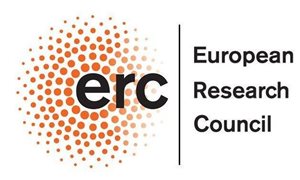 Ubiquitination entails the covalent but reversible attachment of the 76 amino acid protein ubiquitin to, in most cases, lysine residue on protein substrates.
Ubiquitination entails the covalent but reversible attachment of the 76 amino acid protein ubiquitin to, in most cases, lysine residue on protein substrates.
It can be classified into monoubiquitination, multi-monoubiquitination and polyubiquitination according to the number and topology of ubiquitin molecules that are conjugated to the substrate. Ubiquitin signaling plays an important role in essentially all cellular processes. For example, monoubiquitination alters protein activity and subcellular localization, K48 polyubiquitination targets substrates for proteasomal degradation and K63 or linear polyubiquitin (polyUb) chains serve as protein-protein interaction platforms to mediate signal transduction. Although ubiquitin linkage selective interactions have been studied in a case-by-case basis, proteome-wide interaction proteomics studies have not been described yet.
Employees working in the research group headed by Michiel Vermeulen, theme Cancer development and immune defense together with researchers working in the lab of Huib Ovaa and the LUMC now describe Ubiquitin Interactor Affinity enrichment-Mass Spectrometry (UbIA-MS), a quantitative interaction proteomics method which makes use of chemically synthesized diubiquitin linkages to enrich and identify ubiquitin linkage interactors from crude cell lysates. The researchers describe the first global, proteome-wide interaction landscape for ubiquitin signaling in multiple cell types. Amongst the main findings, the authors identify TAB2/3 as novel K6 diubiquitin interactors, and they characterize UCHL3 as a K27-linkage selective interactor that regulates K27 polyubiquitin chain formation in cells. Furthermore, the researchers describe a class of monoubiquitin and K6 diubiquitin interactors whose binding is induced upon induction of DNA damage. In the future, UbIA-MS will have broad applications in the ongoing efforts to decipher the complex language of ubiquitin signaling. This work was very recently published in the journal Molecular Cell.
Related news items

T cell immunity is directed by tetraspanin CD53
5 July 2022 T cells are immune cells that are key for the defense against pathogens and cancer. T cells depend on the membrane protein CD45 to initiate T cell receptor signaling, but how CD45 is controlled at the molecular level is poorly understood. go to page
A single protein complex balances the very first lineage decision of cells in human: towards foetus or placenta
21 June 2022 The international group of researchers spearheaded by Dick Zijlmans and Hendrik Marks together with colleagues from KU Leuven, examined which proteins are associated with the chromatin and how this affects gene transcription. go to page
Dutch Society of Clinical Chemistry Science & Innovation Award for the team of Hans Jacobs
14 June 2022 The team of Hans Jacobs pioneers on the development of personalized diagnostics to measure minimal residual disease in patients with multiple myeloma. go to page
European grants for groundbreaking Radboudumc research Professors Roshan Cools and Peter Friedl receive ERC Advanced Grant
26 April 2022The European Research Council (ERC) is awarding grants to Roshan Cools and Peter Friedl, both professors at Radboudumc. While Cools will investigate how brains control behaviour in (stressful) situations, Friedl will work on developing a new cancer therapy.
go to page
Saponin-based adjuvant-induced dendritic cell cross-presentation is dependent on PERK activation published in Cellular and Molecular Life Sciences
20 April 2022 Lisa Huis in ‘t Veld, Nataschja Ho and colleagues from the team of Gosse Adema published in Cellular and Molecular Life Sciences that Saponin-based adjuvant-induced dendritic cell cross-presentation is dependent on PERK activation. go to page
Rubicon grants awarded to three RIMLS researchers
19 April 2022Three researchers have received Rubicon funding from NWO/ZonMw. This will enable Elke Muntjewerff, Laura de Vries and Laurens van de Wiel to do research at a foreign research institute for the next two years.
go to page